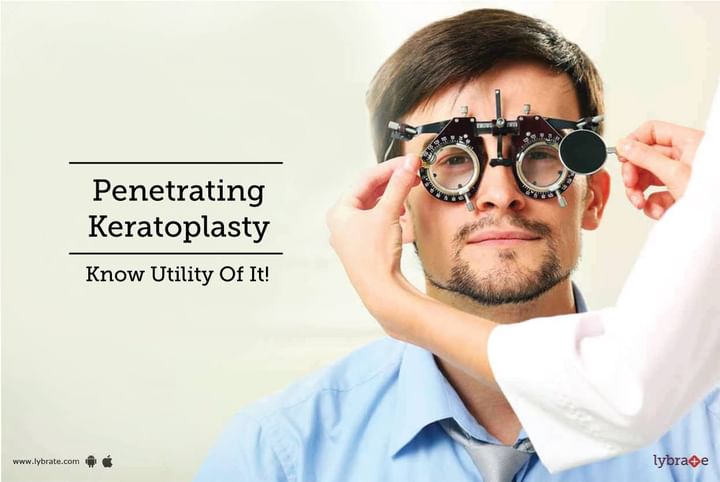Penetrating Keratoplasty - Know Utility Of It!
Ulcers and perforations of the cornea are some very serious clinical conditions, which threaten vision rapidly and progressively and disintegrate the eye globe. They need to be taken care of immediately to prevent irreparable damage to the eyes. In spite of the advanced medical research and practice, severe injuries, infections, and diseases of cornea can lead to serious corneal perforations, which require surgery necessarily as the ultimate solution.
Urgent reconstructive surgery might be necessary to avoid consecutive endophthalmitis, formation of synechiae (anterior and posterior), and secondary glaucoma to prevent the spread of pathogens toward posterior pole of the eye globe. This surgery is also performed to avoid other severe complications including inflammation.
The approach of performing surgery to retain corneal integrity depends on localization, size, state of internal globe tissue, and depth and severity of corneal tissue damage. The state of inflammation and causative infection influences the choice and sequence of surgeries. Urgent Penetrating Keratoplasty, Total Penetrating Keratoplasty, and Corneal or Corneo Scleral Patch Graft, or combination of surgical approaches, also called ‘Keratoprosthesis’, which are performed only for end-stage, progressive corneal pathology, or the last-chance medical treatment.
Ramon Castroviejo, in 1951, described Penetrating Keratoplasty as a method to replace a larger diseased cornea and sclera lying adjacent to it with donor tissue.
The goal of Penetrating Keratoplasty is tectonic repair of large corneal perforations to restore the integrity of the eye globe and correcting or resolving many other conditions of the eye simultaneously.
When to Perform Penetrating Keratoplasty?
Penetrating Keratoplasty is performed for perforated cornea in the following cases:
-
Corneal degenerations.
-
Keratoconus and ectasias.
-
Corneal dystrophies including Fuchs endothelial dystrophy.
-
Viral keratitis.
-
Noninfectious ulcerative keratitis.
-
Post-infectious keratitis.
-
Microbial keratitis including Fungal and Bacterial keratitis.
-
Chemical injuries.
-
Congenital opacities.
-
Refractive indications.
-
Mechanical trauma.
-
Regraft unrelated to allograft rejection.
-
Regraft related to allograft rejection.
Surgical Procedure:
Surgical procedure involves the following steps:
-
Preparation of donor tissue is the first step. A corneal button slightly larger than the host corneal opening helps in reducing post-surgical excessive corneal flattening, reducing risk of secondary glaucoma, and enhancing closure of the wound.
-
Afterwards, host cornea is trephined; viscoelastic is filled into the anterior chamber followed by placement of donor tissue on the endothelial side down of recipient's eye.
-
Cornea is then sutured in place, interruptedly or continuously. Interrupted sutures are preferred in inflamed, vascularized, or thinned corneas and in paediatric cases.
-
Penetrating Keratoplasty might be performed in combination with cataract surgery, glaucoma surgery, retinal surgery. and secondary intraocular lens implantation.
Take Away:
Penetrating Keratoplasty is the true and last-chance medical treatment to treat large corneal perforations. It is the only ophthalmologic surgical procedure which restores ocular integrity, and at the same time takes care of infections, inflammations, and necrotic tissue. Such a holistic approach minimizes the risk of endophthalmitis and prevents the spread of disease to the globe of the eye. It also improves the probability of graft survival and has good potential to improve visual acuity.
Penetrating Keratoplasty is an effective surgical process. However, it is always advisable to consult an experienced and skilled surgeon before opting for this method.



+1.svg)
